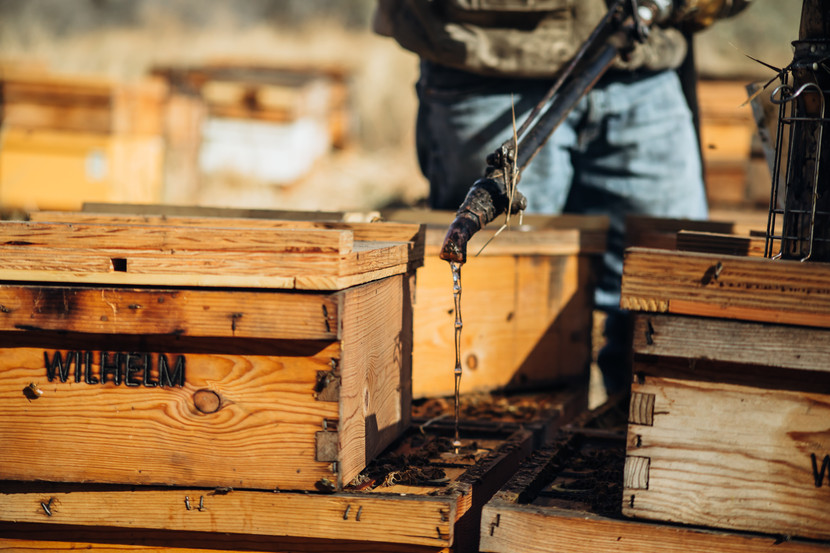Nourishing the Buzz: The Importance of Feeding Beehives
- melanieroyalhoneyc

- Jun 20, 2023
- 2 min read
Updated: Jun 28, 2023
Bees are remarkably hard workers who do a lot for the environment they are in and the hive they call their home. To maintain healthy and thriving bee colonies, beekeepers often find it necessary to provide supplemental feeding to their hives. Feeding hives is done by providing sugar syrup (a mix of sugar and water) and pollen sheets to each hive. In this blog post, we will explore the significance of feeding beehives and the benefits it brings to both the bees and beekeepers.
1. Ensuring Adequate Nutrition:
Feeding beehives becomes essential when natural forage is scarce or when weather conditions, such as prolonged drought or harsh winters, limit the availability of nectar and pollen. Bees require a balanced diet to support their physiological needs, raise brood, and maintain overall hive health. Supplemental feeding offers a lifeline during times when bees would otherwise struggle to find sufficient food sources.
2. Stimulating Colony Growth:
During periods of rapid colony growth, such as in the spring, feeding beehives can provide a boost to the population. Additional food resources, such as sugar syrup or pollen substitute, help nourish the growing colony and support the queen in laying more eggs. This aids in building up strong and robust bee populations necessary for efficient pollination and honey production.
3. Preventing Starvation:
Bees store honey as their primary food source, but unexpected circumstances can deplete their honey reserves faster than they can replenish them. If a hive runs out of stored food, starvation becomes a significant risk. By providing supplementary food, beekeepers can prevent starvation and ensure the survival of their colonies, particularly during periods of food scarcity or environmental challenges.
4. Supporting New Colonies and Packages:
When starting a new colony or introducing a package of bees, feeding becomes crucial. Newly established colonies or packages often lack sufficient stored honey reserves to sustain them during the initial stages. Supplemental feeding gives them a head start by providing the necessary nourishment and supporting their establishment and growth in their new environment.
5. Medication and Treatment:
Feeding can also serve as a means to administer medications or treatments to the hive. Beekeepers may mix medications or additives with the feeding solution to combat specific pests, diseases, or nutritional deficiencies. This method ensures that the entire colony receives the necessary treatment, promoting overall hive health and disease prevention.

Feeding beehives is a vital practice in beekeeping that supports the well-being and vitality of these industrious pollinators. Whether it is during periods of food scarcity, colony growth, or new hive establishment, supplemental feeding plays a crucial role in ensuring adequate nutrition, preventing starvation, and supporting hive health. To promote honeybee health in your sphere of influence, plant wildflowers and other plants that provide bees with needed pollen and nectar! Visit our blog post on what to plant to support pollinators!












Comments